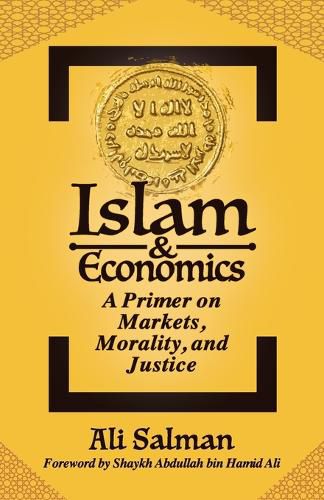Readings Newsletter
Become a Readings Member to make your shopping experience even easier.
Sign in or sign up for free!
You’re not far away from qualifying for FREE standard shipping within Australia
You’ve qualified for FREE standard shipping within Australia
The cart is loading…






This title is printed to order. This book may have been self-published. If so, we cannot guarantee the quality of the content. In the main most books will have gone through the editing process however some may not. We therefore suggest that you be aware of this before ordering this book. If in doubt check either the author or publisher’s details as we are unable to accept any returns unless they are faulty. Please contact us if you have any questions.
This primer is an introductory text to rediscover the principles of commerce and economics revealed in the Qur'an, espoused by the Sunnah (practices of the Prophet Muhammad), and understood by the jurists. Islam offers three moral principles of economic organization: ownership, wealth creation, and wealth circulation. Based on these principles, Islam and Economics derives a framework of operational institutional tenents for the economic organization of a society. It addresses all important business, policy, and equity issues that any economic system should resolve and broadens the discussion on the modern discipline of Islamic economics.
$9.00 standard shipping within Australia
FREE standard shipping within Australia for orders over $100.00
Express & International shipping calculated at checkout
This title is printed to order. This book may have been self-published. If so, we cannot guarantee the quality of the content. In the main most books will have gone through the editing process however some may not. We therefore suggest that you be aware of this before ordering this book. If in doubt check either the author or publisher’s details as we are unable to accept any returns unless they are faulty. Please contact us if you have any questions.
This primer is an introductory text to rediscover the principles of commerce and economics revealed in the Qur'an, espoused by the Sunnah (practices of the Prophet Muhammad), and understood by the jurists. Islam offers three moral principles of economic organization: ownership, wealth creation, and wealth circulation. Based on these principles, Islam and Economics derives a framework of operational institutional tenents for the economic organization of a society. It addresses all important business, policy, and equity issues that any economic system should resolve and broadens the discussion on the modern discipline of Islamic economics.